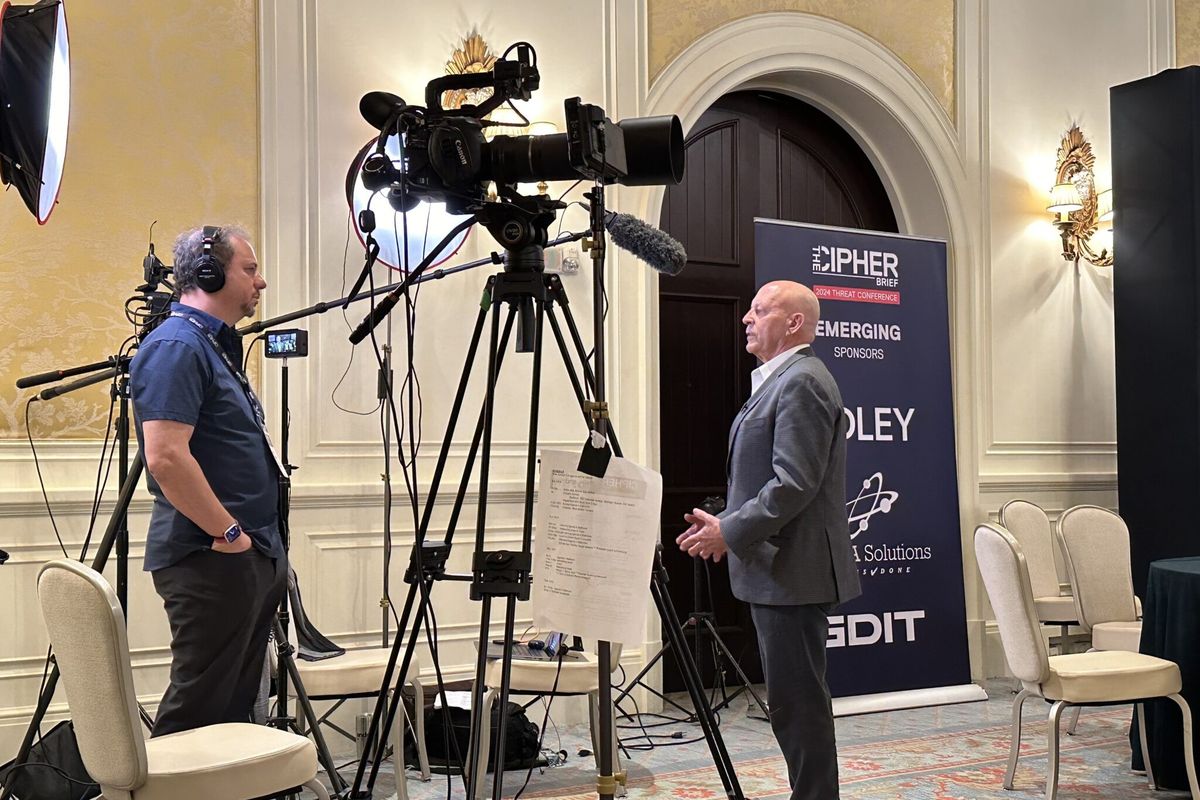“Our next president will inherit a world that in my judgment has a multitude of national security challenges that collectively are greater than any other president has inherited in some decades.” A stark assessment from Michael Vickers, former Green Beret, CIA paramilitary operations officer and Undersecretary of Defense for Intelligence, as he spoke at The Cipher Brief’s monthly Georgetown Salon Series event in Washington D.C.
He went on to map out the most pressing security challenges facing the next administration, describing the current climate as a “dawn of a new national security era” that’s been “a long time in the making.”
“If you trace origins of the challenges we face today, most of them date back to 1979. It’s when, of course, we had the Iranian revolution. We had Sunni jihadists seize the grand mosque in Mecca, triggering the Sunni golden jihadist movement,” said Vickers.
The fall of the Soviet empire and Deng Xiaoping’s economic reforms that “launched China on this dramatic, unprecedented period of economic growth” were other events, said Vickers, that created the new security era.
It all culminated in a world today that Vickers described as “a Middle East in flames from state collapse, sectarian conflict, jihadism and Iranian bid for hegemony.” It also gave rise to a “fusion of intensified great power competition with Russia and China.”
An added challenge, he said, is that deterrence has been eroded particularly in the cyber realm. “There are more tools available to our adversaries,” he said.
He also pointed to the emergence of grey zone conflicts, essentially shadow wars fought by proxies.
The one common thread that strung together these “adversaries” said Vickers, was that they all wish to “eject” America from their regions and “establish a new order to their liking.”
To fight these new threats, the next administration needs new tools, taking cues from successful campaigns of the past.
Finding the Goldilocks solution in the Middle East
“It would be great if what happened in the Middle East stayed in the Middle East,” said Vickers, adding the region is “spinning out of control and generating new threats.”
Among those threats is the global reach of ISIS, inspiring lone wolf attacks around the world. Vickers said that requires the new administration to take measures to strengthen domestic intelligence and homeland security.
He also said it is vital for the new government to shore up ties in the region and reassure allies “who have begun to question American commitment and credibility and have gone their separate ways in pursuing security policies”.
The new government has to accelerate the defeat of ISIS. Taking lessons from the successful U.S. campaign that toppled the Taliban in Afghanistan, he said “We broke the back of the Taliban when we really started hammering them with bombers, 2000 pound bombs each, and then had a [ground] force that could exploit that.”
Comparing it to the current campaign against ISIS, Vickers said some 60 percent of air strikes targeted Iraq instead of Syria, where the “concentration of forces and the headquarters are.” He also said the strikes have been about “one-eighth or one-fourth of the intensity of our Afghanistan campaign.”
“That doesn’t mean you should bomb willy nilly… but that’s what I think has gone missing in this campaign.”
The final challenge facing the Middle East, said Vickers, is the wider war between “Iran and its allies and Saudi Arabia and its allies.”
He recognized the need to address Iran’s “mischief” around the region, not just in Syria, but in Yemen and elsewhere. “One of the lessons from the Cold War is the need to counter an adversary while you still do deals with them. So arms control deals, nuclear agreements; they make sense on some terms,” said Vickers. “If they’re doing all kinds of other bad behavior — overthrowing governments and propping up regimes, harassing our ships — you still have to respond in those areas as well.”
He acknowledged that finding a path to stability is the most “daunting” challenge in the Middle East.
Pointing to options that have not yet worked, he said, “We’ve tried lots of things from nation building to large forces to toppling someone and leaving them to their own devices.”
“Hopefully there’s a goldilocks solution somewhere in the middle that will work as the Middle East evolves. It’s critical to win the peace and the not the war.”
The tasks ahead
In mapping out the tasks ahead for the next administration, Vickers pointed to the methods that he believes works:
- hardening defenses and forcing terrorists to go to softer targets;
- expanding intelligence by integrating agencies;
- launching aggressive offensive sustained campaigns;
- maintaining sustained assistance and advising of partners;
- building on the global counter–terrorism network that allows governments to identify terrorists across countries.
In terms of fighting threats from Russia and China, Vickers said the U.S. has to strengthen its cyber capabilities, use covert action, and strengthen alliances with partners.
In the long run, he said America needed to revitalize its economy and seek game-changing, next generation technologies, as part of the third offset strategy.
Leone Lakhani is an executive producer and reporter at The Cipher Brief.













